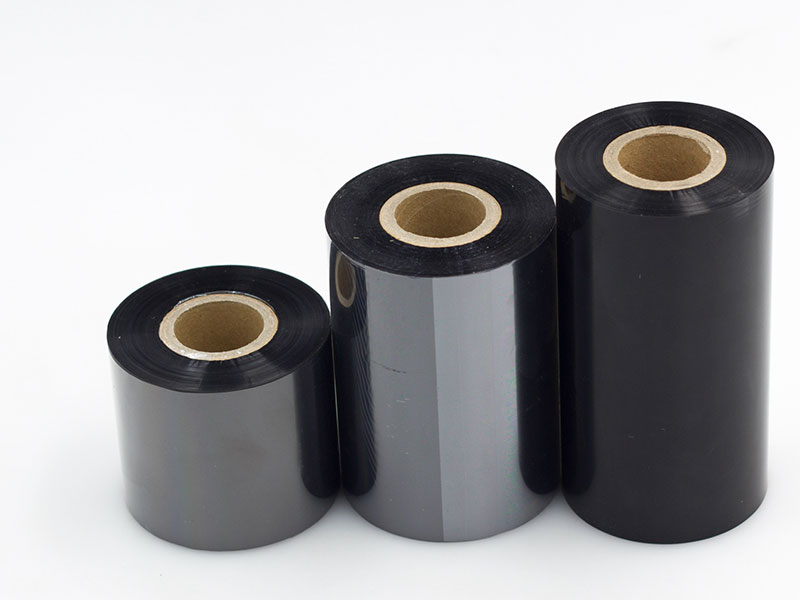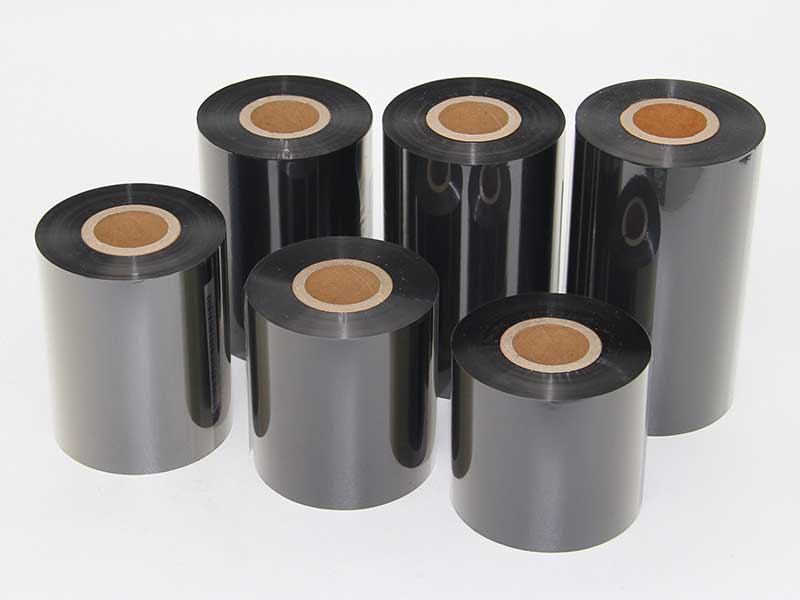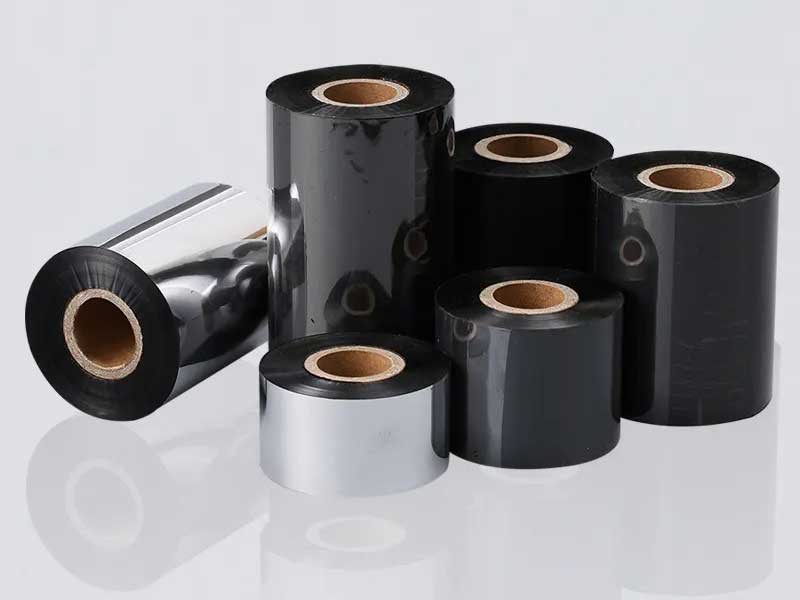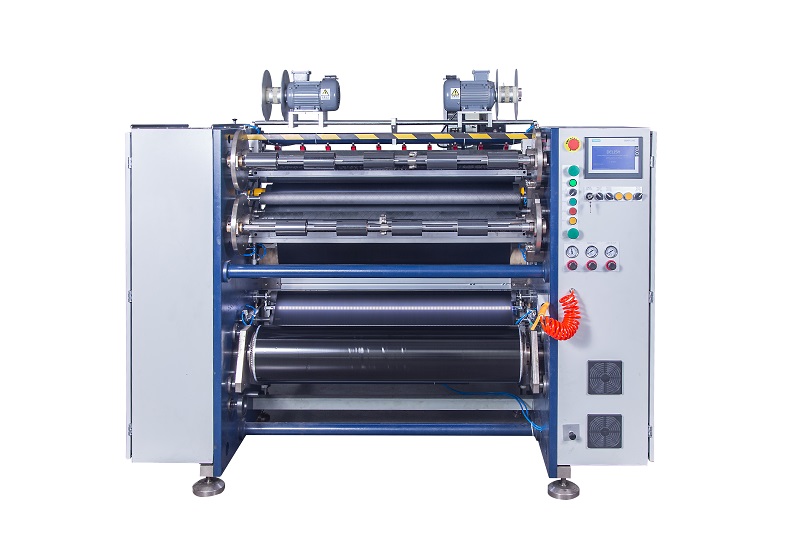As a kind of high-precision processing equipment, the application field of ribbon slitting machine has expanded from traditional industrial manufacturing to high-end industries such as medical, electronics, and new energy. The following are the multi-functional applications and technical adaptation schemes of ribbon slitting machines in multiple fields:
1. Core applications in the field of industrial manufacturing
1. Label & Packaging Industry
• Thermal transfer ribbon slitting
The wide ribbon is cut into a narrow width suitable for the printer (such as 110mm→60mm) to ensure the clarity of barcode printing, and the slitting accuracy needs to be controlled within ±0.05mm.
• Anti-interference design
In an industrial environment, the slitting machine needs to have an electromagnetic shielding function to prevent the ribbon coating from absorbing dust due to static electricity.
2. Electronic material processing
• Conductive ribbon slitting
Conductive carbon film slitting for flexible circuits (FPC) uses laser slitting technology to avoid short circuits caused by burrs.
• Ultra-thin material handling
Slitting thickness< In the case of 20 μm electromagnetic shielding film, it is equipped with an air-floating winding system to prevent the material from stretching and deforming.

2. Innovative applications in the medical field
1. Medical labels and consumables
• Aseptic ribbon slitting
In the clean room, the slitting of medical label ribbons needs to be ISO 13485 certified, and the slitting process is dust-free (e.g. with FFU air filtration unit).
• Biocompatible materials
When slitting ribbons with an antimicrobial coating, the tools need to be made of ceramic to avoid metal contamination.
2. Wearable medical devices
• Flexible sensor ribbons
For blood glucose monitoring patches, the ultra-thin conductive ribbon (width 0.5mm±0.02mm) is slit, and the visual positioning system is used to ensure accuracy.
• Resistant to sterilization
The slitted ribbon needs to withstand ethylene oxide sterilization, and the slitting machine needs to be pre-equipped with a material stability test module.
3. New energy and high-end electronic applications
1. Lithium battery manufacturing
• Tab ribbon slitting
Slitting of conductive ribbons for battery tabs requires no metal shavings (with diamond-coated tools).
• High temperature slitting
For ribbons coated with high-temperature glue, the slitter needs to be equipped with a cooling system (e.g. liquid nitrogen spray) to prevent the adhesive layer from melting.
2. Semiconductor packaging
• Wafer carrier tape slitting
Slitting of the carbon fiber composite tape carrying the wafer, using ultrasonic slitting technology to avoid material delamination.

4. Cross-industry technology adaptation scheme
| Industry Demand | TECHNICAL SOLUTIONS | Case Reference |
| Medical sterile environment | Fully enclosed slitting cabin + positive pressure dustproof design | Medical RFID tag ribbon slitting |
| Ultra-narrow web slitting (<1mm) | High rigidity linear guide + nano-level guiding system | Conductive tape slitting for miniature electronic components |
| Highly viscous materials | Freeze slitting technology (-30°C low temperature environment) | Medical pressure-sensitive tape slitting |
| Composite slitting | Multi-axis linkage slitting knife set (layer by layer cutting) | Carbon fiber-aluminum foil composite film slitting |
5. Breakthroughs in cutting-edge technologies
1. Laser-Induced Slitting (LIS)
◦ Non-contact slitting by laser spot heating ribbon coating for fragile materials such as graphene conductive films.
2. AI real-time quality inspection
◦ At the same time, the slitting is used to detect the uniformity of the coating by infrared spectroscopy, and the unqualified sections (such as medical diagnostic test strips and ribbons) are automatically rejected.
3. Adaptive tension algorithm
◦ Dynamically adjusts the tension according to the change in the coil diameter of the ribbon to avoid material breakage (especially for elastic ribbons).

6. Industry pain points and coping strategies
• Challenge 1: Ribbon coating peels off
→ Solution: Plasma treatment prior to slitting to enhance coating adhesion.
• Challenge 2: Micro slitting dust
→ Solution: Integrated vacuum cleaner + HEPA filtration (medical grade requirement).
7. Future development direction
• Miniaturized slitting: to meet the needs of microfluidic chips, nano sensors, etc., the slitting width is moving towards 0.1mm.
• Biodegradable ribbon slitting: Adapt to environmentally friendly PLA/PBS-based ribbons and develop low-temperature slitting process.
• Cloud platform collaboration: The global database of slitting parameters is shared to quickly match the process needs of different industries.
The ribbon slitting machine is becoming a key equipment for cross-field manufacturing through precision, cleanness and intelligent upgrading. Enterprises need to choose differentiated configurations according to application scenarios (e.g., the medical industry focuses on sterility, the electronics industry pursues ultra-precision cutting) to maximize the value of the equipment.

What kind of slitting machine you choose determines to some extent how much you can release your production potential and how far you can go in the fierce market competition.
28. February, 2026
This article will delve into how ribbon slitting machines can protect the quality of barcode printing from the source.
28. February, 2026
It is not only production equipment, but also a key lever for enterprises to leverage profit growth by reducing costs, increasing efficiency and improving quality.
28. February, 2026
This is not only an iteration of equipment, but also a comprehensive redefinition of production efficiency, material utilization and intelligent management standards.
27. February, 2026
It is in this context that the new generation of ribbon slitting machines is redefining the production standards of the industry with "precision manufacturing" as the core.
27. February, 2026